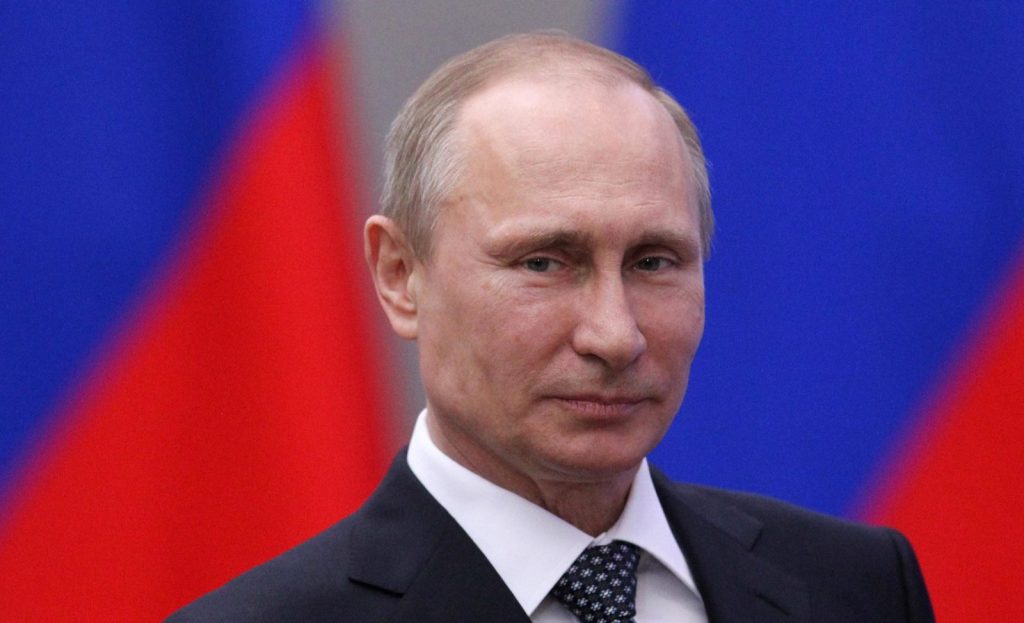
Published April 26, 2019
The conservative media world, along with all but a few Republican members of Congress, are in the process of handing Vladimir Putin his greatest victory yet. They are ignoring the copious evidence in the Mueller report that Russia interfered in our election and continues to do so. Pace Jared Kushner, it was a whole lot more sinister than a “couple of Facebook ads.”
The narrative has now taken hold that the Mueller investigation originated with the Steele dossier. On Fox News, Ed Henry said that the FBI relied on the dossier to “get this whole thing going.” Breitbart referred to the “debunked Russia hoax,” and a Wall Street Journal editorial demanded to know how “the partisan propaganda known as the Steele dossier become the basis for an unprecedented FBI probe of a presidential campaign . . .”
As the Mueller report makes clear, and as even the controversial “Nunes memo” of 2018 conceded, the investigation did not begin with the dossier. It began when a foreign government (believed to be Australia) “informed the FBI about its May 2016 interaction with [George] Papadopoulos and his statement that the Russian government could assist the Trump Campaign.”
Sixteen members of the Trump campaign had direct ties with Russians or Russian agents, including President Trump. Some of these were benign. Some were not. Paul Manafort was sharing polling information and plans for winning midwestern states with Konstantin Kilimnik, who has ties to Russian intelligence. Is it the received Republican wisdom now that this was not, at the very least, eyebrow raising?
As for Trump’s connections to Russia, we now know that throughout most of the campaign, even as he was issuing tweets like this one on July 26, 2016 — “For the record, I have ZERO investments in Russia” — and saying it was “crazy” to suggest that Russia was dealing with Trump, in fact he had been negotiating one of his largest real-estate projects ever, for a Trump Tower Moscow, until just the previous month.
But even if the investigation had begun with the Steele dossier, so what? As they say in legal circles: res ipsa loquitur — “the thing speaks for itself.” The Mueller report is sober and meticulous. The dossier is hardly mentioned. If Republican partisans skip over the documentation of Russian meddling because they’ve internalized Donald Trump’s sense of grievance, they are disserving the nation.
The Russian interference was and is far more extensive than a few Facebook and Twitter posts, though those were noxious enough. The IRA (Internet Research Agency), an arm of the Russian intelligence services, along with the GRU (Russia’s foreign intelligence service), also organized “dozens” of actual rallies, hacked into the computers of the Democratic party, maliciously spread falsehoods, stoked already existing divisions between Americans of different races and ethnicities, and planted malware. More worrying, the report notes that the Russians aimed at actual voting infrastructure:
Victims included U.S. state and local entities, such as state boards of elections (SBOEs), secretaries of state, and county governments, as well as individuals who worked for those entities. The GRU also targeted private technology firms responsible for manufacturing and administering election-related software and hardware, such as voter registration software and electronic polling stations.
In August 2016, GRU officers targeted employees of [redacted], a voting technology company that developed software used by numerous U.S. counties to manage voter rolls . . .
The independent counsel did not further investigate these attempts to subvert elections because “the Office understands that the FBI, the U.S. Department of Homeland Security, and the states have separately investigated that activity.”
Or perhaps not. According to the New York Times, former homeland-security secretary Kirstjen Nielsen wanted to make blocking Russian interference in the 2020 election a top priority. She was warned off by Trump’s chief of staff, Mick Mulvaney, who made it clear that the president still regards any mention of Russia as a personal slight.
In a continuation of patterns established under Communism, Russia has exerted malign influence on elections in many nations. Throughout the democratic world, they seek to sow the kind of division and distrust they enjoy in mother Russia. Latvia, Lithuania, Estonia, Ukraine, Hungary, and other former Soviet captives have been particularly hard hit, but the Russians have also stirred the pot of Catalan succession in Spain, boosted Marine Le Pen in France, and helped Brexit in Great Britain. In 2017, the Netherlands switched to all paper ballots to prevent Russian hacking of its election.
What is the difference between other democracies and the U.S.? Only here does dismissing the threat of Russian interference now equate with loyalty to the president.
COPYRIGHT 2018 CREATORS.COM
Mona Charen is a senior fellow at the Ethics and Public Policy Center.








